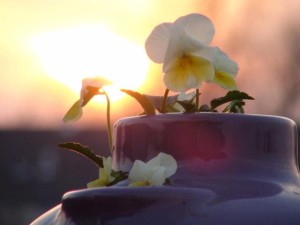Indiana Jones and the Sanctum of Wisdom
I changed my applied area of study to composition after one unnoteworthy (pun intended) semester as a saxophone major. I was tasked by my mentor, Professor Robert Beadell, to compose something for the student composer recital that spring. I decided to write a piece for tenor voice and piano.
The search for a text was a journey. I wanted to find a text that was unfamiliar, or written by an author who was relatively unknown. I considered asking a friend to compose a text for me, but decided to simply start exploring.
For whatever reason I am a research addict and, prior to the internet, that required me to head to the library. I was most at home in the Keene Memorial Library in Fremont since I had spent the better part of my childhood summers there avoiding the heat and humidity of June and July. I devoured the variety of reading materials contained within and, quite frankly, enjoyed viewing the displays of the “human form,” in photography and art books inside that climate controlled sanctuary. Forgive me. My curiosity apparently knows no bounds.
I began my research by grabbing a large pile of books from the poetry section and started exploring. I felt like Indiana Jones dodging literary pitfalls and linguistic snares. This treasure hunt was, like many, one in which the existence of the prize was expected, but not guaranteed. I would simply have to double-check that I was still donning my trademark fedora and press on.
The heavy, dust-covered anthologies received my initial attention. I labored through page after page of classic ballads, sonnets and rhymes. I was even willing to give haiku a chance. Nothing spoke to me. I wasn’t looking for the Ark of the Covenant, but I couldn’t settle for a bottle cap discovered with a metal detector either. I spent a long weekend hunkered down in my favorite Fremont hot spot and wondered if I should beckon the spirit of Hazel M. Keene, after whom the library was named, to aid me on my quest.
Without fanfare I came across a thin, unassuming, “modern” collection of poetry. I can’t remember the title of the book now, but I remember the moment I found my Golden Idol, “A Progress Without Trumpets.” As a musician, I adored the title of the poem, but thought the author’s name was too pedestrian. Leroy Smith Jr? Smith? SMITH? It’s about as bad as Schmit. Then I read his work.
A Progress Without Trumpets by Leroy Smith Jr.
“Summer died one morning while we slept and we were in autumn before we missed her.
And recalled with that affection which is remorse for half-indifference towards the dead we loved.
We were in autumn and a skin of ice taunted our blood and broke while we remembered stock-scented, sultry noons and summer’s eyes warming our own to sleep where paradise mused in the sea-voiced leaves.
And so we slumbered past knells for spring and nod.
Now the autumn dies.”
Adventure complete! I photocopied the page from the book and headed back to Lincoln, Raiders of the Ark theme playing in my head, satisfied. The song came together very quickly and I was fortunate to have a wonderful young man, now my good friend, Scott Herr premiere it.
A few years ago I went back to the Keene Memorial Library to find that book. The librarians and I searched diligently. It has never been found. I contacted Mr. Smith’s widow to learn more. She said all his works are in the archives at Penn State University. Maybe someday Indiana Jones will visit State College, Pa.
Here is the premiere of “A Progress Without Trumpets.” It was the first time I heard one of my original compositions. Thanks for letting me share.
http://nolanschmit.com/…/ew…/a_progress_without_trumpets.mp3

